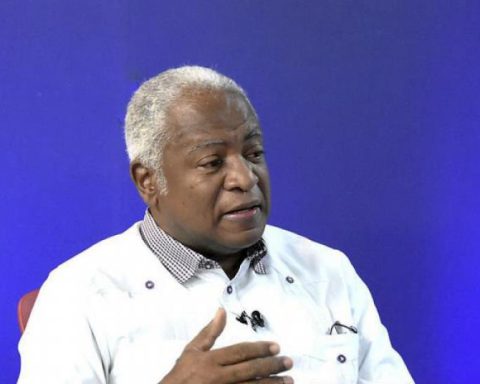In order to continue promoting digital transformation and economic development in the country, the Government has opted for the inclusion of new technologies, such as artificial intelligence (AI), but from an ethical perspective. María Lucía Villalba, Presidential Advisor for Digital Transformation, Management and Compliance, He spoke with Portfolio about how the country is in digitalization and about the challenges that the Expert Mission has pointed out.
(Claro connects with fiber optics to Villa de Leyva).
What is the current panorama of the country in terms of digitization and adoption of new technologies?
Colombia has made decisive progress during the government of President Duque in digital transformation, the Department for Digital Transformation was created in the Presidency of the Republic, which raised discussions on this matter to instances such as the council of ministers. Also, it was defined roadmap for digitization of the entities, the citizen folder was created, an artificial intelligence (AI) ethical framework was adopted and, importantly, the regulatory sandbox policy for intelligent regulation was created.
(Colombia, innovation center for its development in Data Center).
This Government bet on artificial intelligence (AI) as the engine of economic growth and development, based on the need for the ethical and responsible use of technology. Likewise, it has advanced with the IA Ethical Framework and the mission of experts, focused on recognizing the need to advance in the areas of employment and talent; also focused on closing gaps in human capital to respond to the challenges that artificial intelligence brings us.
What is the roadmap that the Government has proposed and what will they leave Colombians in terms of AI?
The Government included the pact for Digital Transformation in the National Development Plan 2018-2022. This pact has two main lines of action: one where you bet on a Colombia connected through access strategies and universal internet service. Another where the actions to promote the digital transformation of the public administration, the productive sector and the territories are defined.
We work hand in hand with a mission of international experts to leave the roadmap that allows Colombia to close the gender gap, protect the environment, increase productivity, through the intensive use of AI.
There are several milestones, but it is worth highlighting the existence of 30 initiatives around Colombia’s AI policy on issues of regulation, ethics, data infrastructure and talent, among many others. The legacy is unquestionable.
What are the sectors that have been benefiting from everything related to artificial intelligence?
It works permanently with the public and private sectors, as well as mobile platforms for the distribution of products, early detection of diseases, mining, fintech and proptech solutions, and transportation systems from the private sector. Artificial Intelligence is used intensively in the country.
From the government we have examples such as Betto in the Icbf for the efficient allocation of food in minors, which seeks to guarantee that the processes are transparent and equitable to choose the best operators.
What have been the most important points highlighted by the group of experts regarding the IA?
The Mission has pointed out the need to reduce gaps in technology adoption to prepare for a fair transition in the labor market, prioritizing the reduction of gender gaps and the promotion of the use and development of AI by women and the need to think innovatively about talent and technology adoption policies.
(How is business digital transformation progressing in Colombia?).
The development of safe, fair, legal and ethical exchange frameworks is also highlighted, as well as thinking about AI in terms of environmental challenges as a result of climate change.
The importance of programs such as the 100,000 programmers, or the training of experts in data analytics, which are fundamental bases for this technological leap that we are taking in the country, was pointed out.
María Lucía Villalba, presidential adviser for Digital Transformation.
BRIEFCASE
What are these recommendations made by UNESCO on the ethics of AI?
The UNESCO Recommendation on the Ethics of AI is an international document adopted by more than 100 countries around the world and several of the world’s greatest technological powers.
These propose principles for the responsible use of AI such as transparency, privacy and proportionality in technological use. In a novel and innovative way, the document also points out specific strategies to see this implemented in specific projects, delving into measures such as the ethical evaluation of technological projects and especially artificial intelligence.
Why is it important that these recommendations be adopted in the country and especially in the business sector?
Because the development of AI is imminent, and we have decided not to be left behind and to have a strengthened digital ecosystem that allows us to face the challenges it poses. So, to advance in the adequate adoption of AI, we have to mitigate the ethical risks that it poses to us. We cannot lose the goal of preserving humanity and guaranteeing the well-being of Colombians. That is why we must work on the development of good practices in the ethical and responsible use of Artificial Intelligence.
JOHANA LORDUY
BRIEFCASE















